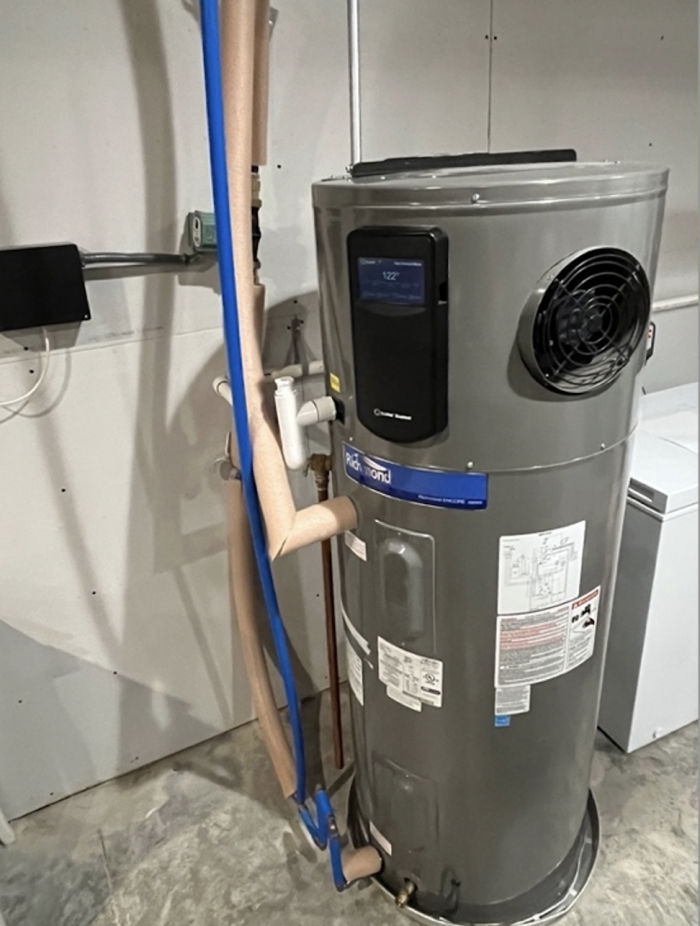
Hot water is a luxury no one wants to do without, especially in the winter. As GBA member bruckner1017 explains in this Q&A, to avoid that issue, he wants to replace his 50-gal. natural gas water heater with something that has greater reserves and is more energy efficient. He is thinking of an 80-gal. heat pump water heater (HPWH), for his shower-loving family of six, but he’s not convinced it will be able to keep up with the demand. He thinks that an electric tankless water heater such as the Autobooster or the HomeAdvantage II (both from Eemax) could be added to boost the supply, but he’s not sure how to size the capacity. He’s also wondering if a second HPWH would be better, but he’s concerned that his basement might get too cold in the winter.
The big question for this Spotlight is: What’s the best supplemental hot water solution for this family?
Hotter water? More storage? Fewer showers?
Not surprisingly, there are varying suggestions from readers. Referring to an endorsement from Matt Risinger, matthew25 (and others) suggests using a well-insulated electric water heater made by Marathon as a backup that would run only when needed. Paul Wiedefeld likes that idea, and adds that drain water heat recovery might help to make the HPWH more efficient. He and others also suggest low-flow shower heads as an inexpensive way to reduce consumption. Another proponent of that low-tech approach, nynick thinks this is a good opportunity for a family meeting to talk about water usage and per person water-flow rates.
Occupant behavior aside, acrobaticnurse_Eli recommends buying an even larger HPWH, while Rearmiend suggests consulting the Department of Energy’s information on water heaters.
The idea of a supplemental tank is a common refrain,…
Weekly Newsletter
Get building science and energy efficiency advice, plus special offers, in your inbox.

This article is only available to GBA Prime Members
Sign up for a free trial and get instant access to this article as well as GBA’s complete library of premium articles and construction details.
Start Free TrialAlready a member? Log in





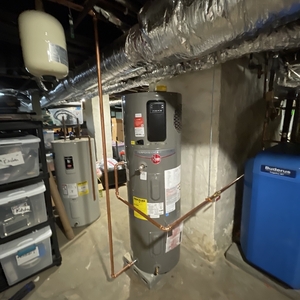
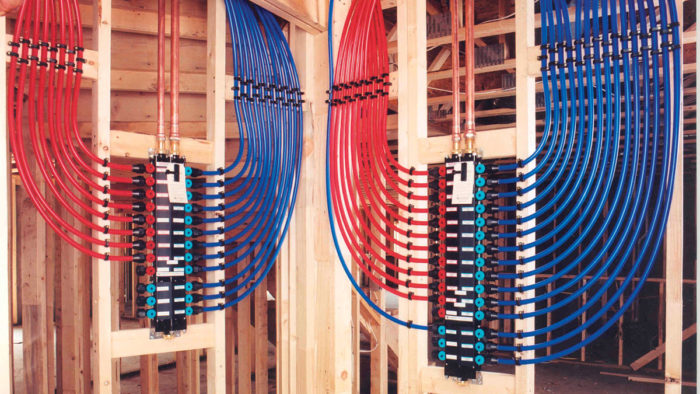
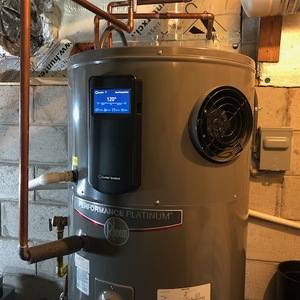
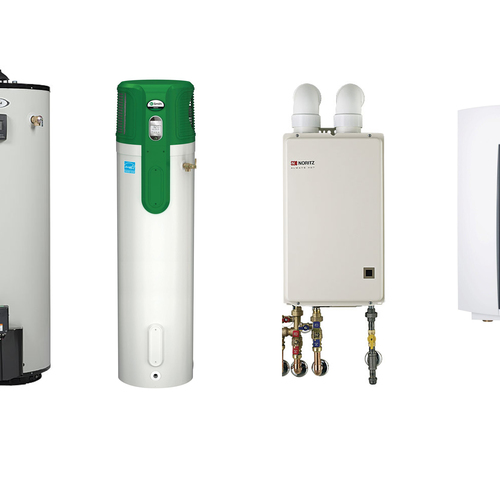






7 Comments
You're really giving short shrift to just reducing the need by using low-flow showerheads. Before doing anything else this should be tried.
In particular, I recommend the High Sierra 1.25 GPM which you can get on Amazon starting at around forty bucks, depending on finish. It gives a very satisfying shower and really stretches the tank.
I always wonder why shower water flow doesn’t include “body area”, as it takes a lot more water to shower a 6’4”-300+ lb. person than a 5’0”-100 lb person… oh yes, and twice the soap. Guess how I know that!😁
Armando,
if we are going that route I'd suggest a variable that takes into account the length of the occupants hair. The difference between the water I used in the late 70's when I has disco hair, and my largely bald head now is considerable.
I missed this in the Q&A but I’m glad I saw it here. I’m in a very similar situation in some ways. Vermont triplex, 5-6 occupants, no gas lines for miles around, and currently have an external tankless coil (basically a mini tank instant water heater, supposedly delivering 10 GPM at 180F) connected to an oil boiler for hot water. This system is dreadfully inefficient in summer, especially given the relatively low water use amongst the tenants (two are seniors.) Long term, I want to get rid of the oil boiler completely, but the market has not come up with a high-temp, cold climate, 80k btu air-to-water heat pump yet, and I’m no longer holding my breath on that. I was all set to buy an 80 gallon HPWH… until I measured my basement and found there wasn’t quite enough vertical clearance. Reading this, I’m getting the sense that a 60 gallon HPWH piped into maybe a 20-60 gallon electric resistance tank is the way to go. I’ll run the HPWH at a high enough temperature that the ER tank should only be maintaining temperature most of the time. If the HPWH ever fails, the ER provides some backup until I can get the HPWH fixed/replaced. I’ll need to think about where the temperature mixing valve should go: after the HPWH, or after the ER tank?
You don't want to run it at hot temperature, the efficiency of a heat pump is directly proportional to the temperature difference between the input and the output, they get a lot less efficient when run hot.
If you put the ER tank downstream of the HPWH, the ER should fill with water that has been heated by the HPWH. It's effectively like having a larger tank. The element in the ER tank should only run for standby losses, and when the HPWH is unable to keep up with demand and the water coming off of it is below the set point of the ER.
I was thinking of running the HPWH at 130 or 140 (in heat pump only mode) so that it would minimize the amount of time the ER tank ever runs (beyond its losses) but that’s a good point - with the ER tank’s additional capacity covering more of the maximum hourly demand, maybe the efficiency loss of running the HPWH hotter *all the time* is greater than the loss from the ER running a bit more occasionally
If the HPWH is pulling air from the room and the room is at 70F, with the thermostat at 120F that's a 50F lift, and at 140F it's a 70F lift. That's a 40% higher lift, which is going to result in a 40 loss of efficiency.
Log in or become a member to post a comment.
Sign up Log in